Do I have to take medication for high blood pressure?
Comments Off on Do you have to take medication for high blood pressure? I can tell you categorically that medication must be taken!
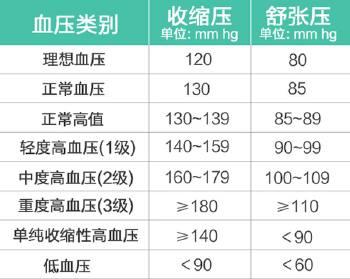
Home to prepare a blood pressure monitor, and then compared to this blood pressure table, you know your blood pressure in which range, if more than the normal value, then you first go to the hospital, do a detailed examination, and then follow the doctor's instructions, start taking medication, the drugstore is too much of a drug to lower blood pressure, as to persuade which drug, one is to listen to the doctor's side of the medication to see the effect, if the effect is very good, don't change it, you can continue to take, if the effect is not satisfactory, you should change another brand, you can continue to take. If the effect is not satisfactory, you should change another brand.
The problem of high blood pressure must not be taken lightly, cardiovascular and cerebrovascular diseases are from the beginning of high blood pressure, if from the beginning of the effective control of blood pressure, that will be able to prevent the occurrence of cardiovascular and cerebrovascular diseases in a timely manner, and control of high blood pressure is an effective way to control their own moods and control their own mouths, control their moods will not increase blood pressure, do not eat high-fat food or do not drink alcohol blood pressure will not be elevated, and the most effective way to take medication after hypertension, some people say that you do not need to take medication with what dietary therapy or other methods can be rooted out hypertension, that is absolutely not. The most effective way to take medication after high blood pressure, some people say that do not need to take medication with what diet or other methods can be rooted hypertension, that is absolutely not, those methods can only have a little auxiliary effect, but never to high blood pressure to completely down.
Got high blood pressure to take medication, but also can't three days fishing two days sun screen, can't feel too dizzy, the body's self-perception of blood pressure is not high on the medication, that's very dangerous, blood pressure is a small step by small step, cardiovascular disease is followed in the wake of high blood pressure quietly come, long-term non-drugs or want to serve to the two tablets, forget or don't want to serve on the service, and over time, and finally the blood pressure is high, it's hard to come down, that cardiovascular disease is also formed, then it's too late. The cardiovascular and cerebrovascular diseases will also take shape, in that case, can be too late, at any time to detect their own glycemic index, according to the rise and fall of blood glucose can reduce or increase the amount of medication, but do not stop taking the medication.
Hypertension evolves into cardiovascular disease, some slow may be ten or twenty years time, some fast may be in a very short period of time outbreak of, so please high blood pressure friends must be taken seriously, never careless!
In our country, there has always been this habit of not taking medication when you can. This is completely understandable. Who would want to take medicine if they are not sick? It's troublesome, tastes bad, and has side effects. But very often there is no way out, especially for many chronic diseases, you have to take medication every day, or even every meal, it is simply annoying. Primary hypertension is such a disease, and many of my friends say that it is annoying. So is it true that all elevated blood pressure requires medication? The result is of course negative, elevated blood pressure does not necessarily mean that long-term antihypertensive drugs. Dr. Zhang summarized, there is elevated blood pressure, the following cases may not need to take antihypertensive drugs.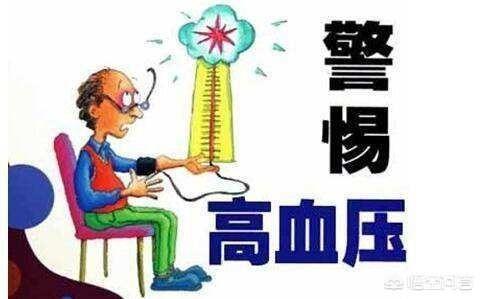
First, white coat hypertension. Also called pseudo-hypertension, at this time the blood pressure increase is caused by the patient's nervousness after meeting the doctor, rather than true primary hypertension, at this time you can not use antihypertensive drugs.
Second, secondary hypertension. As mentioned by Dr. Zhang before, whether it is pheochromocytoma or or primary aldosteronism or renal artery stenosis, etc., it is possible to avoid the use of antihypertensive drugs as long as the cause is found and targeted treatment is provided. As long as the cause of the disease is found and targeted treatment, it is also possible not to use antihypertensive drugs.
Thirdly, for patients with primary hypertension who have just started to be diagnosed, if the elevation is not big, only slightly elevated, and there are no other risk factors, at this time, we can first control the blood pressure by intervening lifestyle for 3 months, and if the control of blood pressure is stable, we will not consider taking antihypertensive drugs for the time being.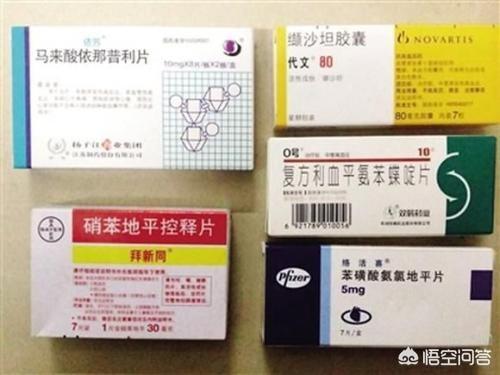
These are just a few of the areas that Dr. Zhang thought of, and I hope you will read them carefully.
Of course, in most cases, primary hypertension does require long-term antihypertensive medication.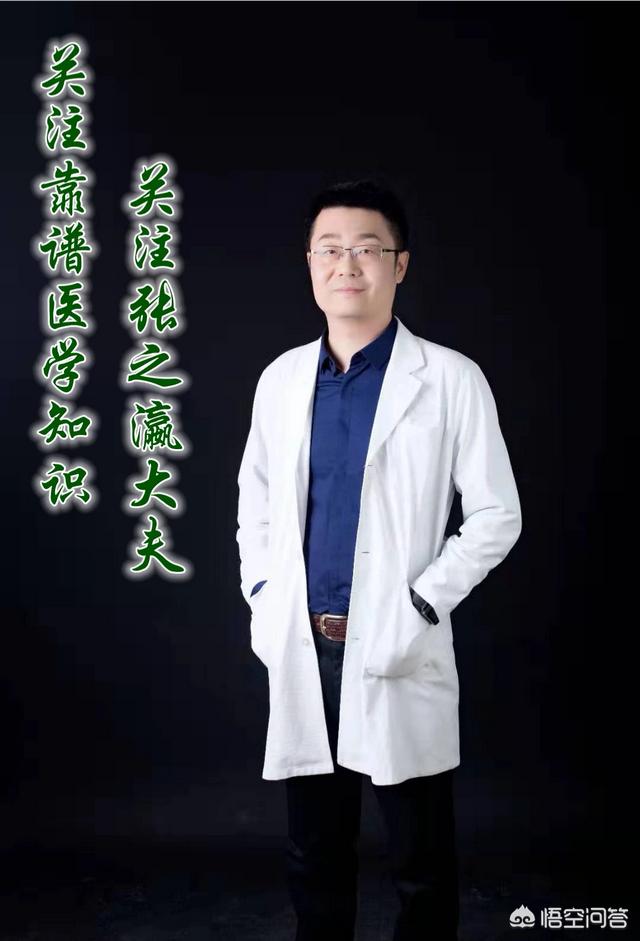
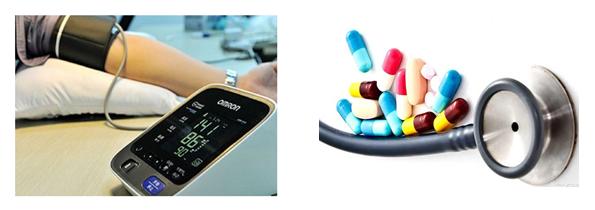 Treatment of hypertension includes both non-pharmacologic and pharmacologic treatments. During consultations, patients often ask if I need to take antihypertensive medication for my high blood pressure. Do all high blood pressure require medication?
Treatment of hypertension includes both non-pharmacologic and pharmacologic treatments. During consultations, patients often ask if I need to take antihypertensive medication for my high blood pressure. Do all high blood pressure require medication?
When to initiate medication for hypertension is closely related to the patient's blood pressure level and cardiovascular risk level stratification. Below we look at the classification of hypertension and cardiovascular risk level stratification.
1 Classification of hypertension
Hypertension can be categorized into the following three types based on blood pressure levels:
Grade 1 hypertension: systolic blood pressure 140-159 mmHg and/or diastolic blood pressure 90-99 mmHg;
Grade 2 hypertension: systolic blood pressure 160 to 179 mmHg and/or diastolic blood pressure 100 to 109 mmHg;
Grade 3 hypertension: systolic blood pressure ≥ 180 mmmHg and/or diastolic blood pressure ≥ 110 mmHg.
2 Stratification of cardiovascular risk levels for hypertension
To assess the prognosis of hypertension, risk stratification is required based on the patient's blood pressure level, existing risk factors, target organ damage, and concomitant clinical disorders, and the following figure shows the content of the simplified risk stratification program for hypertension.
Hypertension Simplified Risk Stratification Project Content
Based on the content of the Hypertension Risk Stratification Program, patients with hypertension can be categorized into low-risk, intermediate-risk, and high-risk strata. See the chart below for details:

3 When to Initiate Medication for Hypertension
Once a diagnosis of hypertension is made, non-pharmacologic lifestyle interventions are required immediately, regardless of grading and cardiovascular risk level stratification.
(1) Drug therapy needs to be started immediately in high-risk hypertensive patients.
(2) For patients with intermediate-risk hypertension, follow-up monitoring of blood pressure and other risk factors is required for 1 month if multiple measurements of blood pressure are takenStill not up to standard, medication is started.
(3) For low-risk hypertensive patients, follow-up monitoring of blood pressure and other risk factors is required for 3 months, and drug therapy is initiated if multiple measurements of blood pressure remain substandard.
Flowchart for the evaluation and initiation of pharmacologic therapy in patients with a primary diagnosis of hypertension
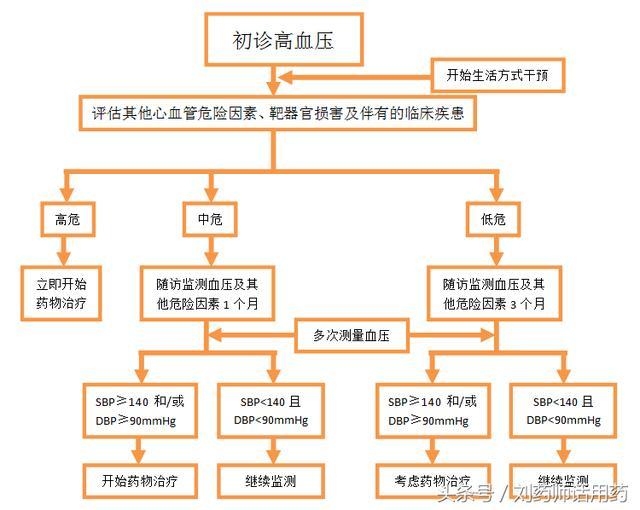
4 Initiate nonpharmacologic therapy in all hypertensive patients
After the diagnosis of hypertension, all patients should adhere to long-term non-pharmacological treatment (lifestyle intervention), and most patients need to adhere to long-term antihypertensive medication. The former is the cornerstone of hypertension treatment, and the latter is the key to achieving the standardized blood pressure, which are complementary to each other and indispensable.
Thank you.
Before answering this question, let's understand the conditions that require antihypertensive medication.
1. Primary hypertension.
① Hypertension grade 2 or above or
②Patients with hypertension combined with coronary heart disease, kidney disease, diabetes, or hypertension already combined with target organ damage or complications such as heart, brain, and kidney
③Patients with persistently elevated blood pressure who have not been able to improve their lifestyles.
④ From the point of view of cardiovascular risk stratification, high-risk and very high-risk patients are treated intensively with antihypertensive drugs.
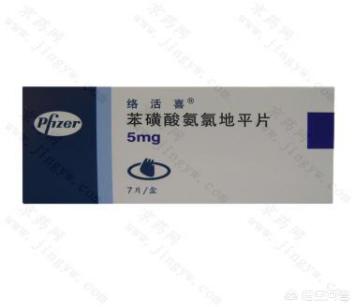
2, secondary hypertension: about 5% of all hypertension, some secondary hypertension can be cured or improved by surgery, but if there is no opportunity for surgery or the effect of surgical treatment is not good, generally still need to continue to use antihypertensive drug treatment.
Back on topic, not all high blood pressure requires medication, it depends on the circumstances
The conditions that do not require medication are described as follows.
1、Hypertension class 1 patients, through improving lifestyle blood pressure has been effectively improved or control patients
2. Some patients with secondary hypertension eradicated or improved by surgery
3, hypertensive patients combined with a variety of shock, especially in the early stage of shock (the book called the compensatory period), at this time the blood pressure can be manifested as a slightly elevated or normal, at this moment can not use antihypertensive drugs, but after the removal of the shock blood pressure increases again, then to continue to take antihypertensive drugs
4, part of the hypertension complication of cerebral hemorrhage, cerebral infarction, cardiac insufficiency, myocardial infarction patients, after treatment can make the blood pressure down to normal, part or even low blood pressure, this kind of patients are also do not need to use antihypertensive drugs, but to regular monitoring of blood pressure.
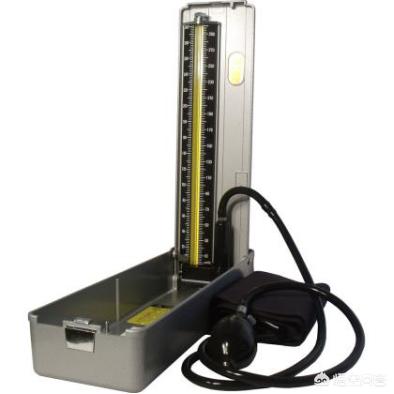
(Images from the Internet, not for commercial use! (The content of this article is for reference only, not as a basis for diagnosis and medication, and can not replace the diagnosis and treatment of doctors and other medical personnel and advice, if you are not feeling well, please seek medical attention in a timely manner.)
Thanks! You must take antihypertensive medication for high blood pressure, but if you don't want to take it, you should come to the hospital and see how many people have all kinds of adverse reactions due to high blood pressure. Especially go to cardiology, nephrology, neurology, neurosurgery, and look at the people who get it and they actually take antihypertensive drugs.
In fact, for people nowadays, taking medication always feels like a very painful thing, as a doctor to say is also very understandable, after all, he or she every day to the pot of medicine, the psychological must be uncomfortable.
But to be honest, having high blood pressure but not controlling it is a very, very bad state of affairs. It's true that in many cases high blood pressure doesn't give you serious symptoms and doesn't affect your normal eating and drinking, but it's just a fear that if something goes wrong one day, it's definitely a big deal.
Then take a clinical look at it, go ask how many patients how they controlled their blood pressure before?
Doing a good job of controlling, in fact, is only the 1st step of high blood pressure, there are many, many don't go, never deceive yourself again. Disease can not deceive you, after reaching a certain quantitative change, immediately produce qualitative change.
Blessings to all of you for good health!
If you have any questions you can click on your personal homepage and ask for advice at the bottom. Welcome to like, comment, forward, attention, take you to understand the real world of neurosurgery (brain surgery). (For reasonable and legal treatment of diseases, please choose the regular channels)
High blood pressure does not always need to take medicine, this also depends on the specific situation. If you usually have normal blood pressure, it is this test found high, you can at different times, pay more attention to rest, in a quiet state and then measure a few more times.
You can also see if there is anything you need to improve in your life, such as being angry before the measurement, or eating too much salt in the period before the measurement, then you can eliminate these bad reasons first, adjust your mood and improve your lifestyle before taking multiple measurements.
If all the external causes get rid of themselves, take measurements several times, and find that your blood pressure has come down, then stick to good interventions in your life and just continue to measure your blood pressure consistently, and you may not have to take medication for a while.
If all the adjustments have been made, and all the things have been done, and there is still no effect, and the blood pressure has been measured several times, and still exceeds the normal value of 140/90mmHg, then it is necessary to consider taking medication to lower the blood pressure, and at the same time, with the adjustment of the life style.
If you need to take antihypertensive drugs, my advice is not to buy them at the pharmacy and take them, but to take them under the doctor's supervision, at least at the beginning. Because antihypertensive drugs in case of taking too much, is likely to cause low blood pressure, at first we can follow the doctor's advice to find their own appropriate dose of drugs, and then strictly follow the doctor's advice this amount of food can be.
The first answer is to tell you that not all high blood pressure necessitates antihypertensive medication!
The latest "Chinese hypertension prevention and treatment guidelines" statistics, China is close to 300 million high blood pressure, that is, every four people have a high blood pressure. Among them, about 5% is secondary hypertension, that is, other clear causes; and 95% is what we usually say hypertension, there is no direct cause, but and genetic, obesity, eat more salt, drink, do not exercise, stay up late, stress and other factors have a relationship.

However, it is not always necessary to take antihypertensive medication when high blood pressure is found.
First, some secondary hypertension does not need to take antihypertensive drugs
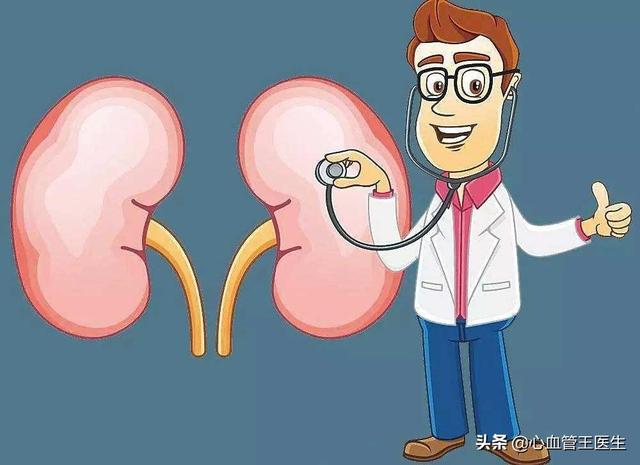
There are many causes of secondary hypertension, usually including kidney-induced, drug-induced, endocrine-induced, caused by severe snoring and so on.
One of them, for example, drug-induced hypertension, by stopping the drug need to be able to return to normal, naturally do not need to take antihypertensive drugs; but if this drug must be taken, then only antihypertensive drugs to combat the rise in blood pressure;
For example, high blood pressure caused by renal artery stenosis will also return to normal through surgery and can be treated without antihypertensive drugs;
For example, high blood pressure caused by pheochromocytoma can be normalized through adrenal tumor surgery without the need for antihypertensive medication.
Second, new-onset essential hypertension does not need to take antihypertensive drugs if these conditions are compounded.

Some of the new-onset hypertension also does not require antihypertensive medication. The Hypertension Guidelines recommend that for newly discovered hypertension of 160/100 or less, if there is no damage to the heart, kidneys, or cerebral blood vessels after the combination of diabetes, then antihypertensive drugs can be temporarily skipped. First through a healthy life, that is, exercise, weight loss, salt reduction, regular work and rest, abstain from alcohol and so on a comprehensive approach to antihypertensive drugs. In about 3 months, if the blood pressure returns to normal, then continue to adhere to a healthy life and do not need to take antihypertensive drugs. But if 3 months is still higher than 140/90 then you need to take antihypertensive drugs to lower blood pressure medicine.
But it doesn't mean that you have to take antihypertensive medication for the rest of your life!
Third, long-term hypertension eating antihypertensive drugs, these cases do not have to continue to eat antihypertensive drugs
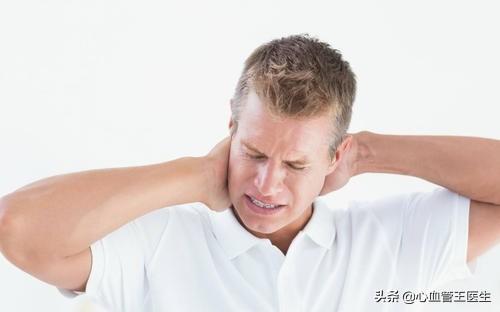
For example, if people who start taking antihypertensive drugs can continue to control their weight, insist on exercise, eat a strict and healthy diet, not stay up late, reduce stress and other methods, their blood pressure is getting better and better, and they can be free of medication, and their blood pressure is within the normal range, then naturally, they do not need to take antihypertensive drugs for a long period of time.
Simple judgment, that is, we have to monitor the blood pressure for a long time, if the blood pressure is close to 90/60, you can reduce the drug or gradually stop the drug to observe, depending on how much antihypertensive drug you take.
Antihypertensive medication also needs to be discontinued if you have low blood pressure for any reason, such as a blood pressure below 90/60, or a blood pressure close to 90/60 that is already experiencing symptoms such as dizziness and fatigue.
As people age, some of them have lower blood pressure and may stop taking their medication; they may have a myocardial infarction and have lower blood pressure and need to stop taking their medication; they may have another disease and have lower blood pressure and need to stop taking their medication.
Fourth, the elderly according to the specific circumstances to decide whether high blood pressure to take drugs
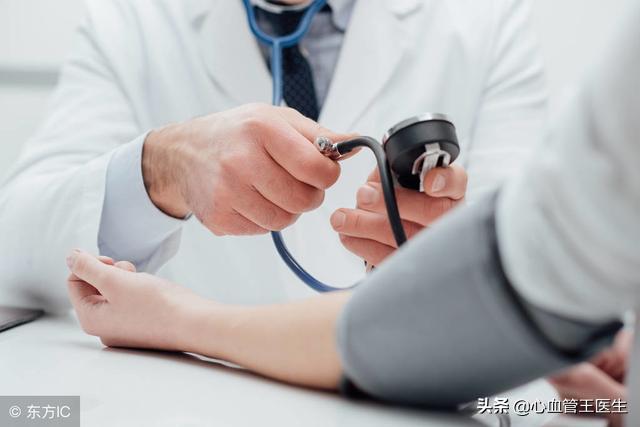
If you are an older person, especially if you are older than 80 years old, and if you have been taking antihypertensive medication when you were younger, you should monitor your blood pressure and determine whether to continue taking antihypertensive medication based on your symptoms. Because with age, some people have insufficient blood supply to the brain, once the blood pressure is lower than 120/70, there may be dizziness and other signs of insufficient blood supply to the brain, and then you need to consider reducing or stopping the medication.
If the elderly newly found high blood pressure, then generally 65-80 years old, can be above 140/90, start antihypertensive drug treatment, but the premise is to eat antihypertensive drugs, the patient does not have uncomfortable feeling; for the elderly greater than 80 years old, the general recommendation, the blood pressure is higher than 150/90 to begin to take antihypertensive drugs, the premise is also the patient tolerance, that is, to eat the antihypertensive drugs and do not have an uncomfortable feeling.
If an older person's blood pressure is higher than 140/90, which is also hypertension, but after taking antihypertensive medication, because of progressively lower blood pressure, cerebral insufficiency of blood supply occurs, then he or she may not take antihypertensive medication.
In conclusion, not all high blood pressure must take antihypertensive drugs, and whether or not to take antihypertensive drugs varies from person to person!
This question should be viewed in this way: what exactly are the dangers of high blood pressure? And what is the purpose of taking antihypertensive drugs?
Hypertension is diagnosed primarily on the basis of in-office blood pressure measurements. The diagnosis is confirmed when the first visit reveals a systolic blood pressure of ≥140 mmHg and/or a diastolic blood pressure of ≥90 mmHg, and the diagnostic thresholds are reached on three measurements taken on non-simultaneous days on two follow-up visits within a 4-week period.
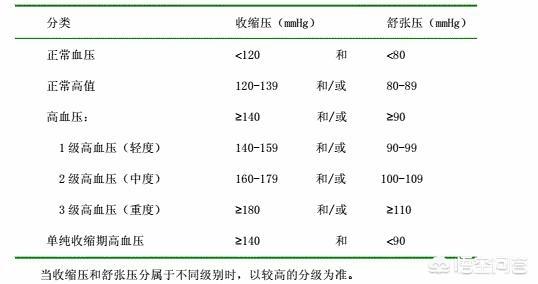
So why is it important to treat high blood pressure? Evidence-based medicine shows that higher blood pressure values, if left unchecked, can cause damage to the target organs of the heart, brain, and kidneys, ultimately predisposing to complications such as coronary heart disease, heart failure, stroke, and renal insufficiency uremia. Research data show that the average life of hypertensive patients is only 54.7 years old, less than normal people live twenty years. Every year, 3 million people die of cardiovascular and cerebrovascular accidents caused by hypertension, and 90% of them die of cerebral hemorrhage, cardiac infarction, cerebral infarction, uremia, renal failure and other complications of hypertension.

So what role does taking antihypertensive drugs play? With antihypertensive drugs, blood pressure can be artificially targeted to control it at an appropriate level without affecting organ perfusion, thus slowing down its damage to target organs and avoiding complications.
Maybe some people say, I what also have high blood pressure does not take medication, how do not see what happened ah? How to say this, first of all, high blood pressure will lead to cardiovascular and other accidents greatly increase the probability of accidents, but does not mean that every hypertensive patient must be at what time an accident. For example, patients with a very high risk of hypertension grade 3 have more than a 30% chance of having a cardiovascular event in the next ten years. You just see a few people who are fine for the time being, but how many patients have you seen in the hospital who have suffered brain hemorrhages and heart attacks because of hypertension?
Recently, Circulation published the latest results of the National Center for Cardiovascular Disease's Hypertension Sample Survey, which showed that the prevalence of hypertension among adults ≥18 years of age in China was 23.2%, with a prevalence of 245 million, and that the prevalence of Normal High Blood Pressure (NHBP) was 41.3%, with a prevalence of 435 million. The rates of hypertension awareness, treatment, and control in China are 46.9%, 40.7%, and 15.3%, respectively, all of which have increased significantly. More and more people are also paying attention to the control of hypertension.
Only a small number of first-episode patients with grade 1 hypertension do not need to take antihypertensive medication outside of active lifestyle changes or timely removal of the cause of hypertension in the early stages of secondary hypertension, as for all other hypertensive patients, they should take antihypertensive medication.
The need for medication for high blood pressure depends on the level of blood pressure and the type of high blood pressure.
For the first measurement of high blood pressure patients, it is recommended to measure continuously at different times for a few more days, if the blood pressure are higher than the upper limit of normal value of 140/90 mmHg, but lower than 160/100 mmHg can not eat antihypertensive medication first, to find out the causes of elevated blood pressure, through lifestyle improvement to lower blood pressure, each lifestyle improvement to lower the level of blood pressure is shown in the table.
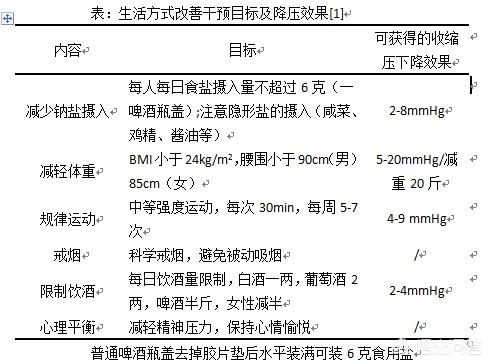
For patients who have been clearly diagnosed with hypertension and whose blood pressure is greater than 160/100mmHg at the first diagnosis, they need to start antihypertensive medication immediately, in addition to lifestyle modification. Even if the blood pressure has been controlled within the normal range during the medication period, the medication should not be stopped, because antihypertensive drugs are used to control blood pressure, not to cure hypertension, and so far there is no drug that can cure hypertension.
Another factor that affects the patient's course of antihypertensive medication is the type of hypertension, which is categorized into primary hypertension and secondary hypertension. For patients diagnosed with primary hypertension, i.e., most elderly people with hypertension belong to this type, they need to take antihypertensive medication all the time and adjust the dosage and varieties of medication according to seasonal fluctuations in blood pressure. For patients with secondary hypertension, i.e., most young people with hypertension belong to this type, after finding the cause of hypertension and removing the cause, the hypertension can be cured and there is no need to take antihypertensive drugs all the time.
In addition, in some special circumstances will also make the performance of hypertensive patients is back to normal, such as undergoing major surgery, some hypertensive patients due to blood loss or other reasons, blood pressure returned to the normal range, some patients will think that the surgery together with the treatment of high blood pressure, in fact, it is not. When the body recovers after surgery, the blood volume will also be restored , the blood pressure will still be high, but also need to take antihypertensive drugs.
References:
[1] National Basic Public Health Service Program National Guidelines for Management of Hypertension Prevention and Control at the Primary Level 2017 Edition
The authoritative interpretation of Pharmaceutical Affairs, unauthorized reproduction, plagiarism will be punished.
Do I have to see a doctor to get a prescription for antihypertensive medication for high blood pressure?
When it comes to high blood pressure, I believe many people are not unfamiliar with it. First, because it is one of the infamous "three highs"; second, because the "three highs" are not only "exclusive" to the elderly, but now more and more young people have also been hit. However, both the elderly and young people, the awareness of hypertension is seriously inadequate: the elderly is poor adherence to lowering blood pressure, while the young people think that they are young and will be fine if they resist.
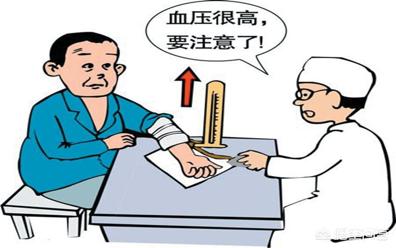
Listen to your doctor - image from the web
First of all, it needs to be emphasized: elevated blood pressure is not the same thing as high blood pressure or hypertension. Elevated blood pressure is transient. When a person is under stress, exercise or stress (for example, if you are particularly afraid of multi-legged bugs, and a centipede suddenly appears next to your pillow while you are sleeping), your heart will beat faster, you will be short of breath, and your blood pressure will soar, and then return to normal as your mood calms down. However hypertension is a disease with clear diagnostic criteria. Generally, it is a 24-hour blood pressure monitoring, taking an average value. 24-hour average blood pressure higher than 135/85mmHg or daytime (when awake) average blood pressure higher than 140/90mmHg or nighttime (when sleeping) average blood pressure higher than 125/75mmHg, can be diagnosed with hypertensive disease. Hypertension refers to primary hypertension, which accounts for more than 90% of hypertension, while hypertension caused by some diseases (such as obesity, diabetes, etc.) is called secondary hypertension, not hypertension.
High blood pressure is known as the "silent killer", although it is not easy to be detected in the early stage due to the lack of obvious symptoms, but whether it is primary hypertension or secondary hypertension, it will damage the heart, brain, kidneys and other important organs. Long-term high blood pressure can lead to stroke, heart failure, myocardial infarction, chronic kidney disease and even sudden death.
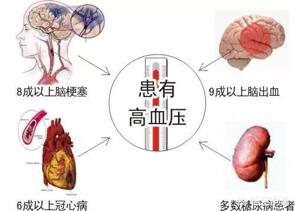
High blood pressure "bonus package" - image from the Internet
So, once diagnosed with hypertension, the first goal is to lower your blood pressure! Lower your blood pressure! Lower blood pressure! Should be under the guidance of the doctor regularly taking anti-hypertensive drugs, specific circumstances specific treatment, to achieve individualized medication. In addition, hypertension is a chronic disease, in the reasonable choice, long-term adherence, regular use of drugs to maintain blood pressure stable at the same time should also change the bad habits (such as drinking, smoking, high sodium diet, etc.), adherence to moderate exercise, weight control.
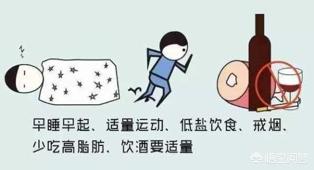
Image from the web
This question and answer are from the site users, does not represent the position of the site, such as infringement, please contact the administrator to delete.